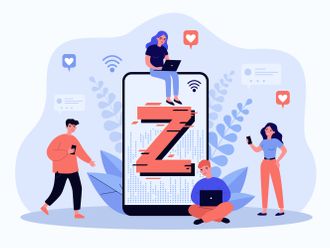
While too much time spent on gaming gadgets, computers, laptops, tablets, TVs and smartphones could significantly harm the eyesight of children and adults alike, kids are at a greater risk as their eyes are still developing. Moreover, staring at digital screens for long hours can cause eye strain among other potential health issues.
Researchers have highlighted that 80 per cent of children, aged 10-17 years, complained of problems such as burning, itchy or tired eyes after using electronic screens for long periods of time.
Some studies have even indicated an increase in symptoms of visual issues later in life after frequent use of gadgets in childhood. What should parents do to prevent children from experiencing any complications?
Time and again, parents have been advised to limit children’s exposure to electronic devices and screens.
According to the Canadian Association of Optometrists and the Canadian Ophthalmological Society, children up to the age of two should not use screens at all, with the rare exception of video-chatting along with a parent.
For children between two and five, screen time should be restricted to one hour every day. This recommendation matches the guidelines released by the Canadian Paediatric Society.
For children 6-18 years of age, parents must limit their exposure to digital screens to not more than two hours a day. More importantly, electronic screens should not be used at all in the hour before bedtime.
Screens of gadgets release a blue light, which suppresses the production of the hormone, melatonin, which is key in controlling the wake-sleep cycle, or the circadian rhythm, of the body.
The devices stimulate the brain and trigger emotional and hormonal responses such as increased adrenalin. This, in turn, keeps the brain alert and makes it harder to fall and stay asleep. This ultimately affects the brain and eye development in children.
The American Academy of Pediatrics still recommends a maximum of one hour of high-quality programming for children under six years of age. Thereafter, parents are advised to place consistent restrictions on screen consumption and encourage screen-free time by doing more physical activities as a family.
— The writer is a specialist in paediatrics at Bareen International Hospital at MBZ City












